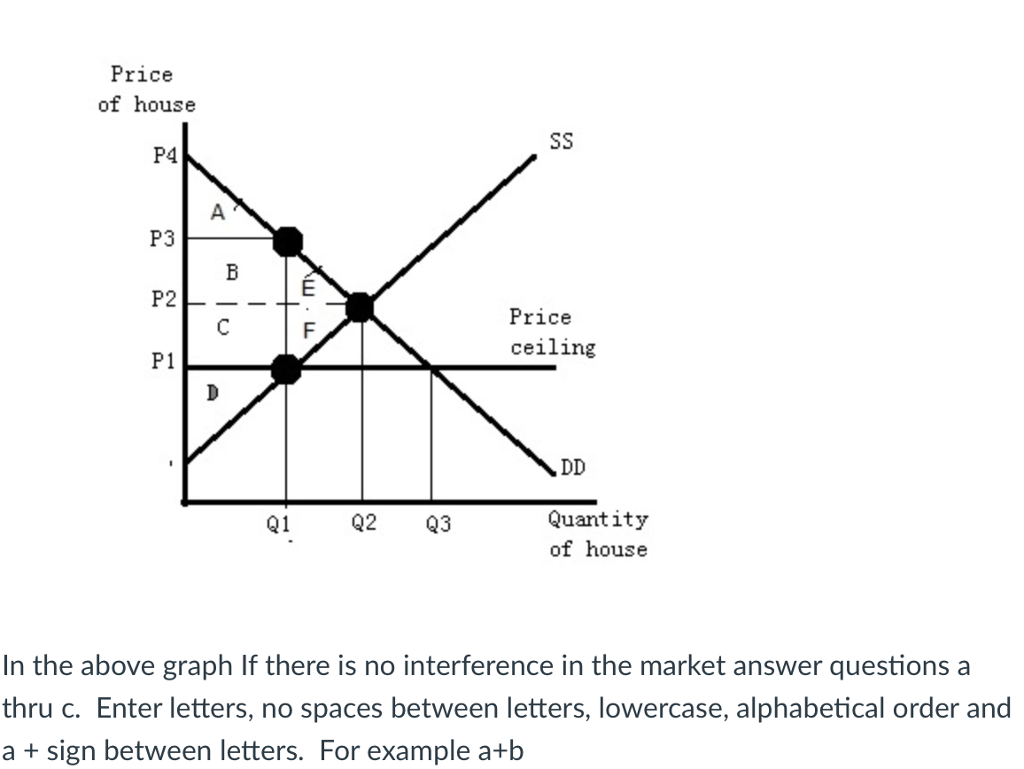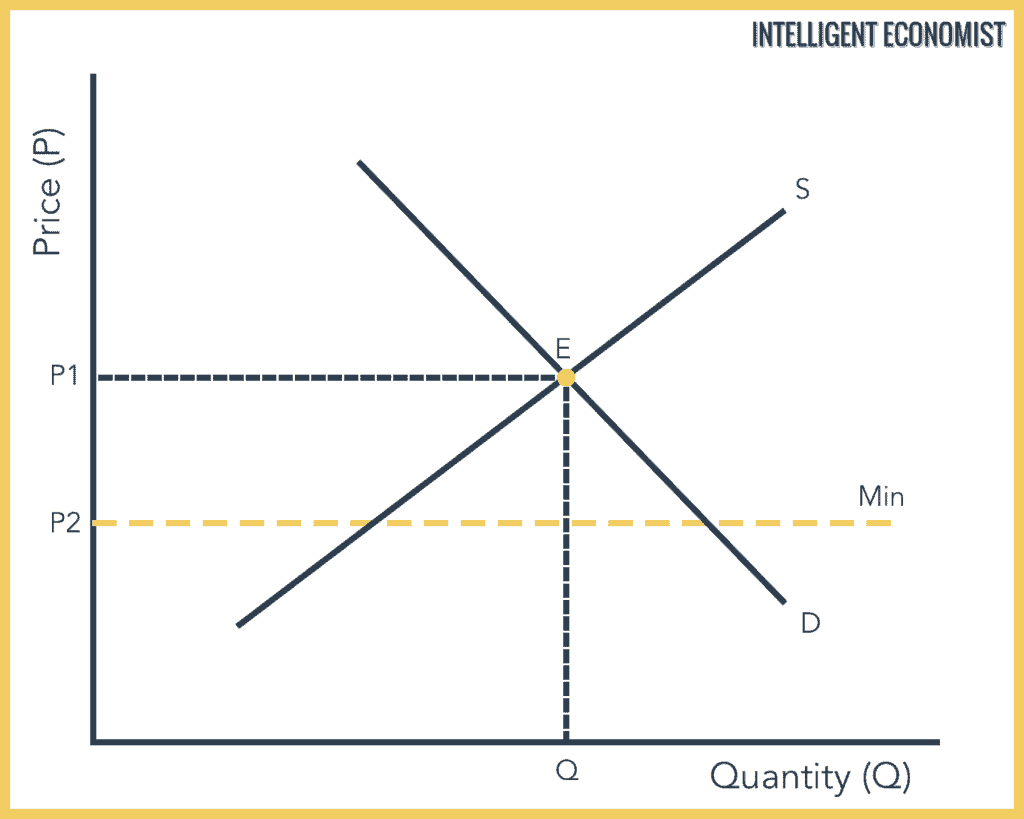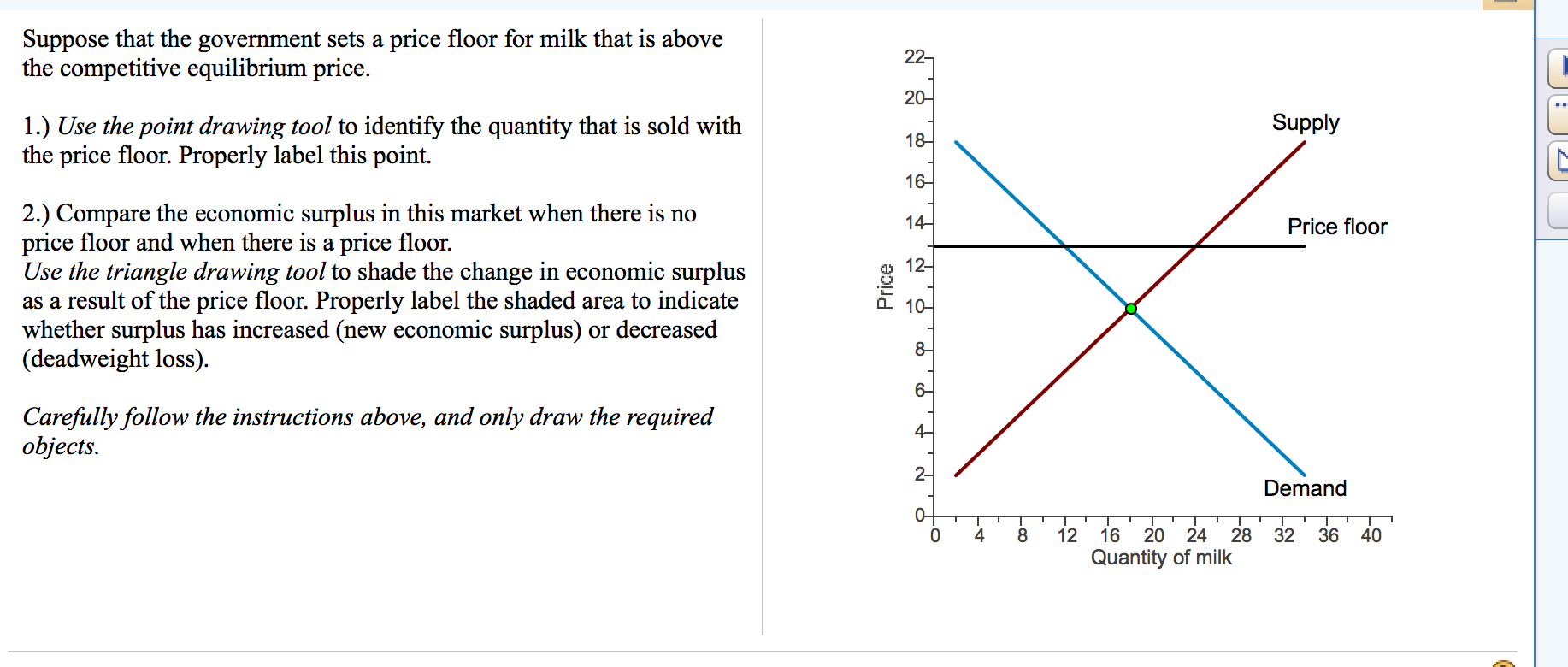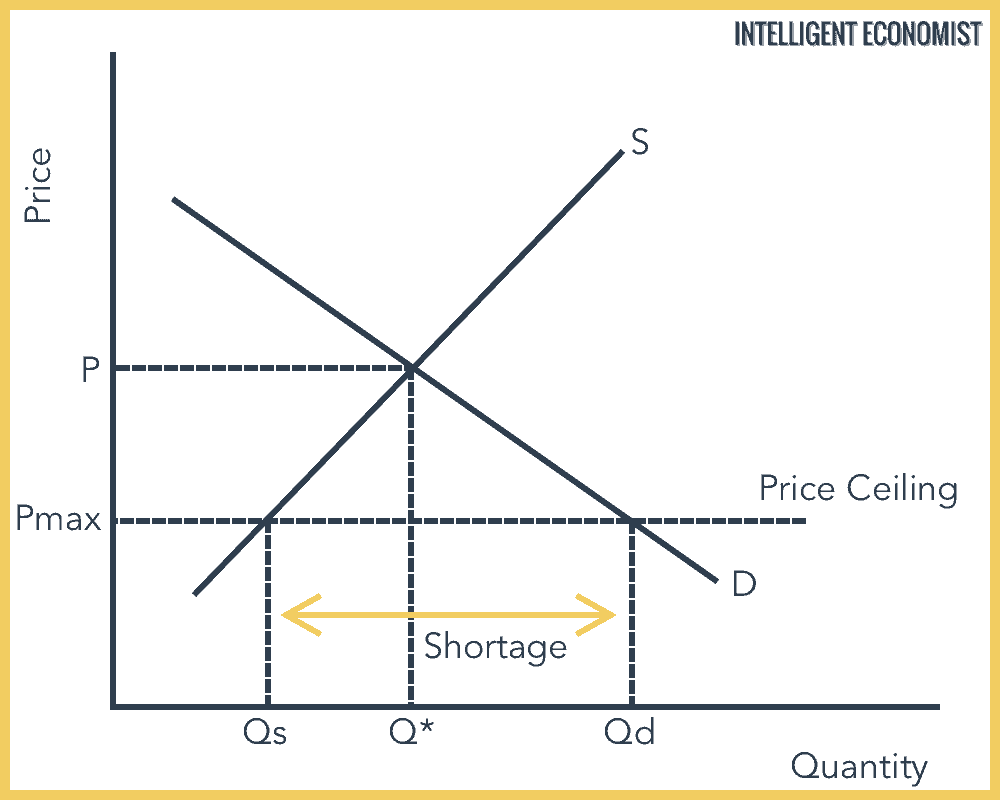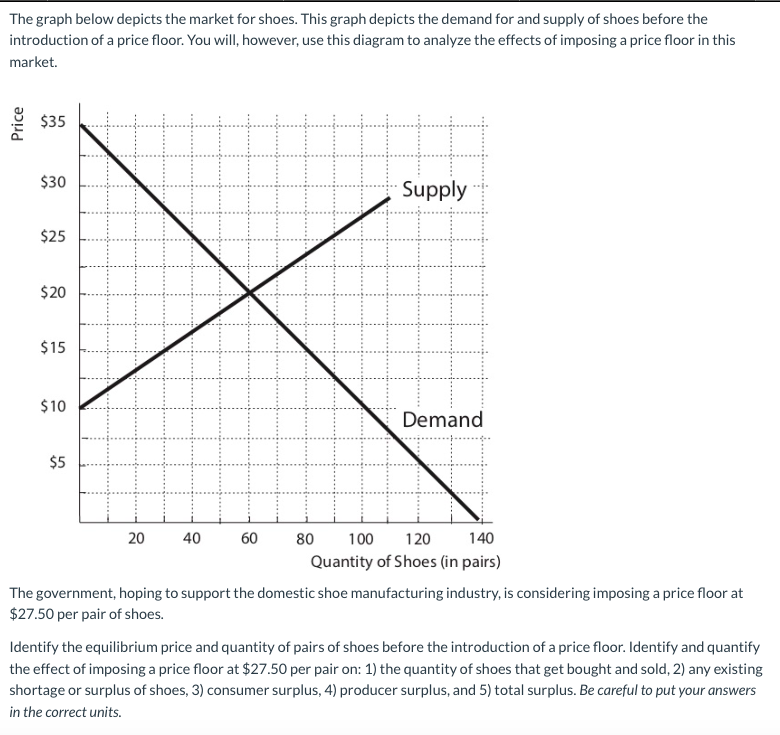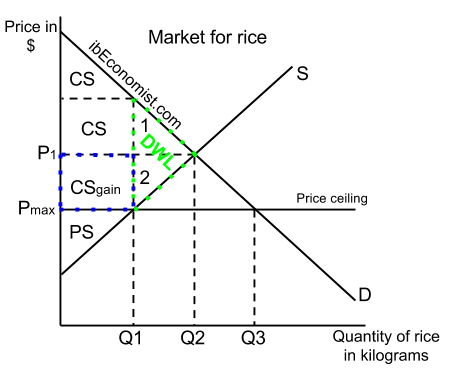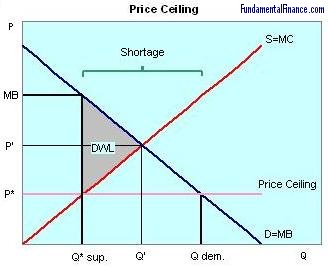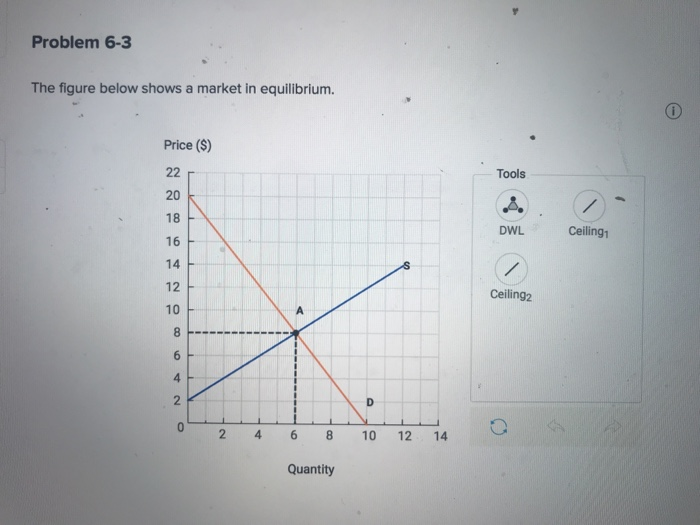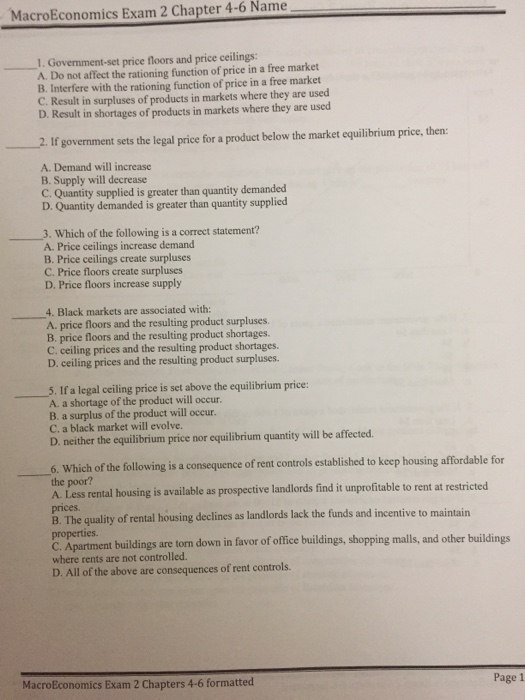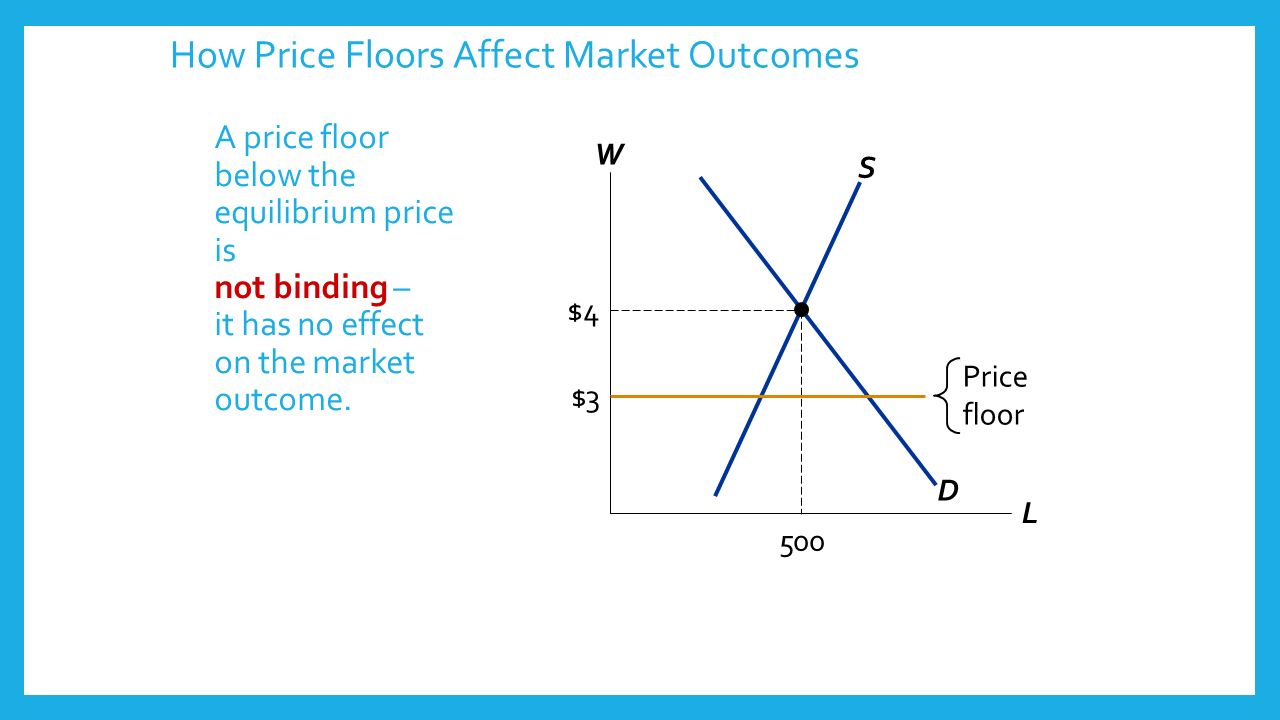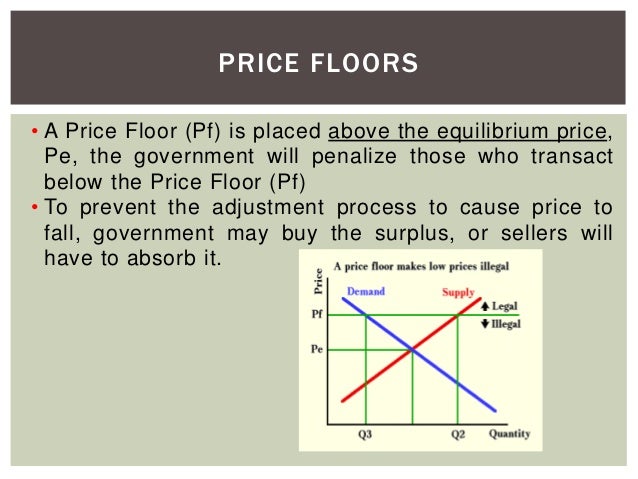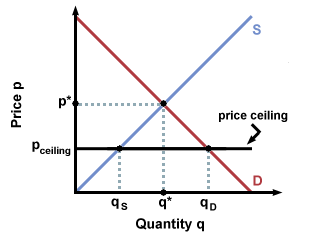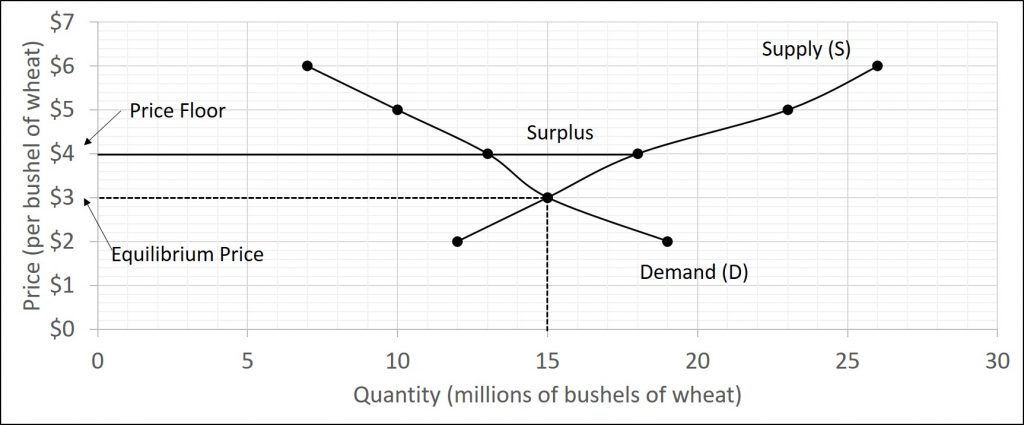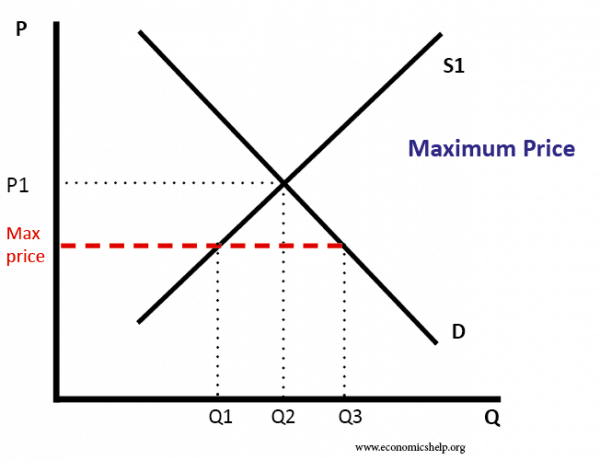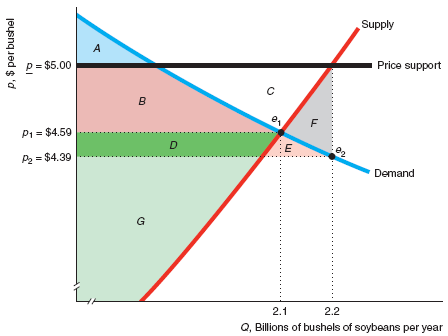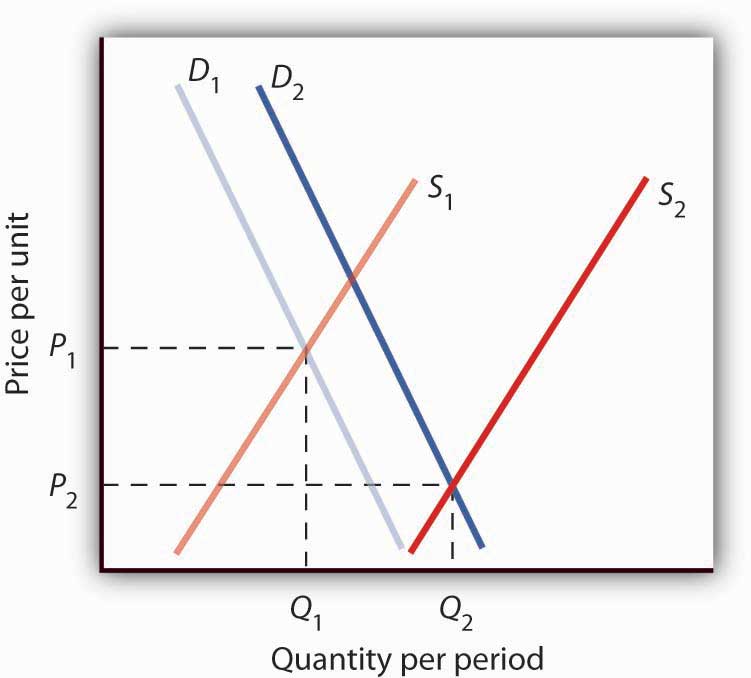The government is inflating the price of the good for which they ve set a binding price floor which will cause at least some consumers to avoid paying that price.
A price floor is usually set the equilibrium price.
Price floors prevent a price from falling below a certain level.
If the price floor is low enough below the equilibrium price there are no effects because the same forces that tend to induce a price equal to the equilibrium price continue to operate.
A price floor example.
Governments usually set up a price floor in order to ensure that the market price of a commodity does not fall below a level that would threaten the financial existence of producers of the commodity.
When a price floor is put in place the price of a good will likely be set above equilibrium.
Types of price floors 1.
A price ceiling is a type of price control usually government mandated that sets the maximum amount a seller can charge for a good or service.
If it s not above equilibrium then the market won t sell below equilibrium and the price floor will be irrelevant.
Price floors and price ceilings often lead to unintended consequences.
A price floor is a government or group imposed price control or limit on how low a price can be charged for a product good commodity or service.
In such situations the quantity supplied of a good will exceed the quantity demanded resulting in a surplus.
Simply draw a straight horizontal line at the price floor level.
Price floors can also be set below equilibrium as a preventative measure in case prices are expected to decrease dramatically.
When a price floor is set above the equilibrium price quantity supplied will exceed quantity demanded and excess supply or surpluses will result.
When a price floor is set above the equilibrium price as in this example it is considered a binding price floor.
A price floor must be higher than the equilibrium price in order to be effective.
Only when the price floor is above the market equilibirum will in influence the market quantity and price.
If the price floor is higher than the equilibrium price there will be a surplus because at the price floor more units are supplied than are demanded.
For a price floor to be effective it must be set above the equilibrium price.
When a price floor is set below the equilibrium price there is nothing preventing the price from rising to its equilibrium level.
Drawing a price floor is simple.
A binding price floor is a required price that is set above the equilibrium price.
This has the effect of binding that good s market.



